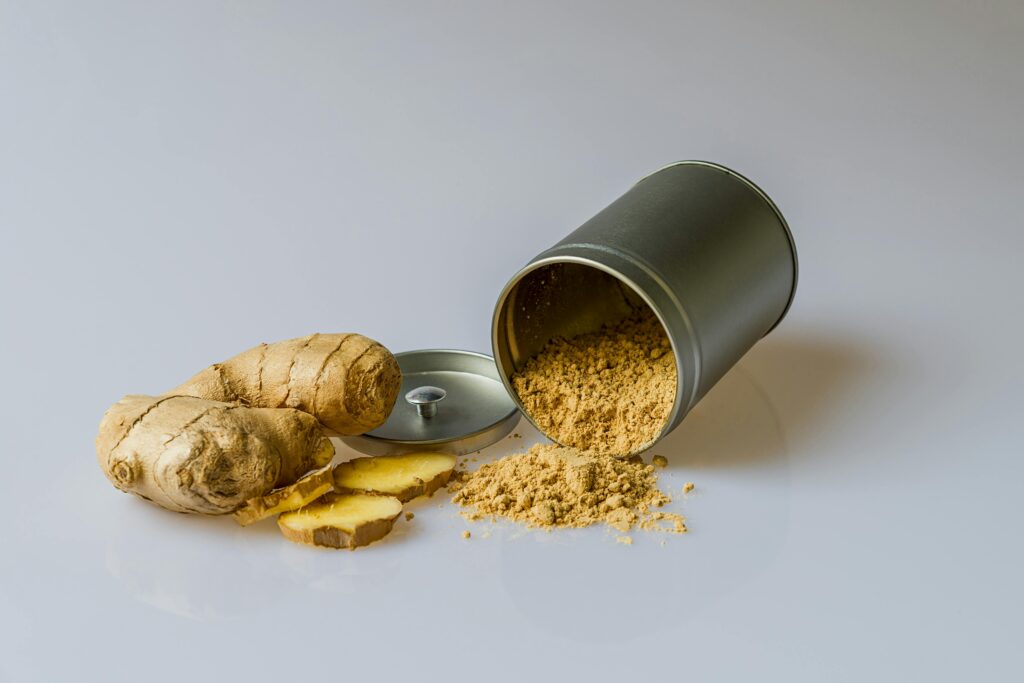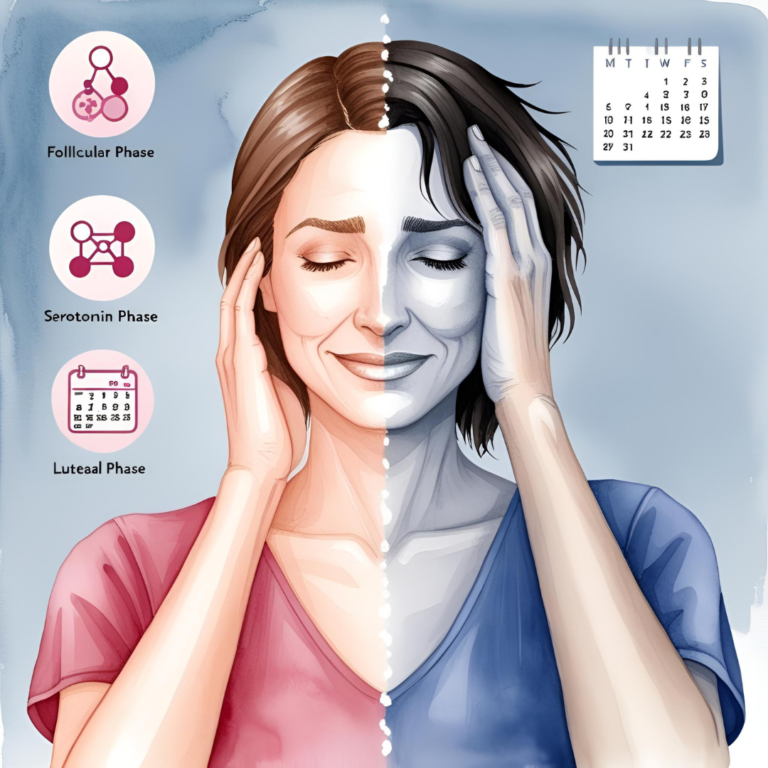Discover the signs, underlying causes, and effective natural remedies for silent reflux in 2025. Learn how to manage silent reflux symptoms holistically with proven strategies and lifestyle adjustments.

Introduction:
Silent reflux, often overlooked and misdiagnosed, affects millions without the classic symptoms of heartburn. Known medically as laryngopharyngeal reflux (LPR), it can disrupt lives with symptoms like chronic cough, sore throat, and even voice changes. While medications are available, many are seeking natural ways to manage and even prevent silent reflux symptoms. This article dives into the symptoms, root causes, and science-backed natural remedies to help you regain control and enjoy a healthier lifestyle without reliance on medications.
Understanding Silent Reflux (Laryngopharyngeal Reflux, LPR)
Silent reflux, or laryngopharyngeal reflux (LPR), is a condition in which stomach contents, including acid and pepsin, flow back up into the throat and larynx, rather than the esophagus, as in gastroesophageal reflux disease (GERD). Unlike GERD, which commonly presents with heartburn, LPR may lack this symptom entirely, thus the term “silent.” The absence of heartburn can lead to a delay in diagnosis, as LPR symptoms often manifest as throat discomfort, cough, hoarseness, or difficulty swallowing rather than the classic burning sensation in the chest.
Common Misconceptions about Silent Reflux
1-Misdiagnosis with Upper Respiratory Issues: Silent reflux is frequently mistaken for allergies, postnasal drip, or asthma due to similar symptoms like throat clearing, cough, and difficulty breathing. This misattribution often delays accurate diagnosis and appropriate treatment.
2-Association with Heartburn: Many assume all reflux-related conditions are accompanied by heartburn. However, LPR may occur independently of heartburn, making it harder to recognize and treat, especially without typical GERD symptoms.
3-Belief that Acid-Reducing Medications Always Resolve Symptoms: Although proton pump inhibitors (PPIs) and H2 blockers can reduce stomach acid, they might not be sufficient for LPR management. Silent reflux is often multifactorial, involving factors like diet, lifestyle, and throat and esophageal sensitivity to acid, necessitating a comprehensive approach to treatment.
The Impact of LPR on Throat, Vocal Cords, and Respiratory Health
-Silent reflux can significantly affect laryngeal and respiratory health:
Throat and Vocal Cord Irritation: Acidic contents reaching the larynx cause inflammation, leading to hoarseness, persistent cough, or the sensation of a lump in the throat. Chronic exposure can cause vocal cord damage, impacting voice quality, especially in professionals like singers or public speakers.
-Airway and Respiratory Impact: LPR has been associated with asthma-like symptoms, such as wheezing and shortness of breath. Chronic aspiration of gastric contents can trigger respiratory issues and may contribute to conditions like chronic cough, bronchitis, and, in severe cases, aspiration pneumonia.
Importance of Early Diagnosis and Proper Management
Early detection and management of LPR are essential to prevent complications and improve quality of life. Untreated, silent reflux can lead to persistent laryngeal irritation, potentially increasing the risk for laryngeal strictures or even laryngeal cancer in chronic cases.
Management Strategies:
Management often includes a combination of dietary adjustments, lifestyle modifications, and medication. Patients are encouraged to avoid trigger foods (e.g., acidic or fatty foods, caffeine, and alcohol) and adopt practices like eating smaller meals, avoiding meals close to bedtime, and elevating the head during sleep.
Common Symptoms of Silent Reflux
Typical Symptoms:
Sore Throat: Persistent soreness often worsens in the morning, potentially due to reflux occurring while lying down.
The acid may irritate the throat lining, causing inflammation and discomfort.
Chronic Cough: A lingering cough that doesn’t respond well to traditional cough medications. Often confused with symptoms of asthma or respiratory infections, chronic cough is a frequent sign of silent reflux.
Hoarseness or Voice Changes: Acid exposure can lead to vocal cord irritation, resulting in a raspy or hoarse voice. People may notice their voice becoming weaker or needing frequent clearing throughout the day.
Atypical Symptoms:
Ear Pain: Though uncommon, acid irritation can affect nearby structures, leading to referred pain in the ears. This is often mistaken for an ear infection when, in fact, it’s due to silent reflux.
Postnasal Drip: Excess mucus production in response to acid irritation in the throat.
Patients often feel the need to clear their throat or feel as though mucus is “stuck.”
Sensation of a Lump in the Throat (Globus Sensation): Described as a feeling of something lodged in the throat. This sensation is linked to throat irritation and muscle spasms in response to acid exposure.
Symptom Severity: How Symptoms Can Vary Between Individuals
Range of Intensity: Silent reflux symptoms can be mild or severe, depending on the frequency and duration of acid exposure.
Fluctuations in Symptoms: Symptoms might worsen with certain triggers, such as lying down after eating, stress, or dietary factors.
Individual Differences: Sensitivity varies; some may experience noticeable symptoms with minimal acid exposure, while others might have silent reflux without significant discomfort.
Causes and Risk Factors for Silent Reflux
Silent reflux, or laryngopharyngeal reflux (LPR), occurs when stomach acid flows back into the throat and voice box, causing irritation without the typical heartburn symptoms. This condition is often linked to various underlying causes and risk factors that can exacerbate symptoms.
Underlying Causes:
Lower Esophageal Sphincter (LES) Dysfunction
The LES is a muscular valve that separates the stomach from the esophagus. When it weakens or fails to close properly, acid can flow back into the esophagus and upper airway, leading to silent reflux.
LES dysfunction can be caused by various factors, including age, obesity, or anatomical changes like hiatal hernias.
Diet and Lifestyle Choices
Poor dietary habits, such as overeating or consuming meals high in fatty or acidic foods, can increase acid production and weaken the LES over time.
Late-night eating, eating large meals, and lying down shortly after meals can also trigger reflux episodes by putting extra pressure on the stomach.
Delayed Gastric Emptying
Slow digestion or delayed gastric emptying can cause the stomach to remain full longer, increasing the likelihood of acid reflux.
Conditions like gastroparesis or diabetes can contribute to this delayed emptying.
Risk Factors:
Obesity: Excess weight, especially around the abdomen, puts pressure on the stomach, which can lead to reflux. Studies show that losing weight can significantly reduce reflux symptoms, as it relieves the strain on the LES.
Smoking: Nicotine relaxes the LES, making it more prone to dysfunction and increasing acid exposure in the esophagus and throat. Smoking also irritates the throat lining, compounding symptoms like hoarseness and chronic cough.
Alcohol Consumption: Alcohol can both relax the LES and increase stomach acid production, making it a double risk factor for silent reflux. Reducing alcohol intake has been shown to improve reflux symptoms in many cases.
Certain Medications: Medications such as NSAIDs, certain blood pressure medications, and muscle relaxants can contribute to reflux by relaxing the LES or irritating the stomach lining. If possible, switching to alternative medications under a healthcare provider’s guidance may reduce reflux symptoms.
Connection with Stress and Anxiety: How Mental Health Affects Reflux
Impact on Digestion: Stress and anxiety can slow down digestion, potentially leading to delayed gastric emptying and increasing the chance of reflux.
Increased Acid Production: Chronic stress may increase stomach acid production, exacerbating silent reflux symptoms.
Muscle Tension and Reflux: Anxiety can lead to muscle tension, including in the stomach and diaphragm, which may put pressure on the LES and promote acid reflux episodes.
Behavioral Factors: Stress-related behaviors like overeating, smoking, or consuming high-caffeine and sugary foods can also worsen reflux symptoms.
The Role of Diet and Specific Foods that Trigger Silent Reflux Symptoms
Acidic Foods: Citrus fruits, tomatoes, and vinegar can irritate the throat lining and increase acid reflux symptoms.
Spicy Foods: Spices, such as chili, can exacerbate reflux symptoms by irritating the esophagus and throat.
Caffeinated Beverages: Coffee, tea, and caffeinated sodas can relax the LES, making reflux more likely.
Chocolate and Mint: Both chocolate and mint relax the LES, increasing the risk of acid escaping into the esophagus.
Carbonated Drinks: Carbonation can increase stomach pressure, which can push acid into the esophagus and throat.
High-Fat Foods: Fried foods, fatty meats, and creamy sauces slow down digestion and increase acid production, both of which contribute to reflux.
Natural Remedies for Managing Silent Reflux Symptoms
Managing silent reflux through natural remedies focuses on reducing triggers, soothing inflammation, and promoting optimal digestion. Here’s a guide to dietary and lifestyle changes, hydration strategies, and herbal remedies that can help alleviate symptoms without relying solely on medication.
1. Dietary Changes:
Foods to Avoid and Anti-Inflammatory Foods to Include
Foods to Avoid
Acidic and Spicy Foods: Citrus fruits, tomatoes, vinegar, and spicy peppers can irritate the esophagus and increase reflux symptoms.
High-Fat Foods: Avoid fried foods, fatty cuts of meat, and heavy dairy, which slow digestion and increase stomach pressure, leading to reflux.
Caffeinated and Carbonated Beverages: Coffee, tea, soda, and energy drinks can relax the LES, making it easier for acid to escape into the throat.
Chocolate and Mint: Both chocolate and mint are known to relax the LES, increasing reflux risk.
Anti-Inflammatory Foods to Include
Ginger: Known for its anti-inflammatory properties, ginger can help soothe the stomach and reduce nausea.
Leafy Greens and Non-Citrus Fruits: Vegetables like spinach, broccoli, and zucchini, along with fruits such as melons and bananas, are low-acid and easy on the stomach.
Oats and Whole Grains: High-fiber foods like oatmeal and brown rice can help absorb stomach acid, reducing symptoms.
Lean Proteins: Skinless poultry, fish, and plant-based proteins are easier to digest than high-fat meats, putting less strain on the stomach.
Lifestyle Adjustments: Sleeping Position, Weight Management, and Meal Timing
Sleeping Position
Elevate the Head: Sleeping with the head of the bed elevated or using a wedge pillow helps prevent stomach acid from reaching the throat.
Sleep on the Left Side: Studies show that sleeping on the left side can reduce reflux by keeping the stomach below the esophagus.
Weight Management
Maintain a Healthy Weight: Excess weight, especially around the abdomen, puts pressure on the stomach, increasing the likelihood of acid reflux. A balanced diet and regular exercise can support weight management and reduce reflux symptoms.
Meal Timing and Portion Control
Eat Smaller, Frequent Meals: Large meals can stretch the stomach and lead to reflux. Smaller, more frequent meals are easier to digest.
Avoid Eating Before Bedtime: Waiting at least 2-3 hours after eating before lying down can reduce reflux. This allows time for food to move through the stomach, reducing the risk of acid backflow.
Importance of Staying Hydrated and Its Impact on Reflux
- Diluting Stomach Acid: Drinking enough water throughout the day can dilute stomach acid, reducing its strength and minimizing irritation when reflux occurs.
- Avoid Overhydrating with Meals: While hydration is important, drinking large amounts of water with meals can increase stomach volume and pressure, which may contribute to reflux.
- Choosing Alkaline Water: Some studies suggest that alkaline water may help neutralize stomach acid. Drinking it in moderation may provide temporary relief from reflux symptoms.

Herbal Remedies: Ginger, Chamomile, and Licorice for Soothing Symptoms
Ginger – Natural Anti-Inflammatory: Ginger has been shown to reduce inflammation in the gastrointestinal tract and can soothe nausea, which is sometimes associated with reflux.
– How to Use: Try sipping ginger tea or adding small amounts of fresh ginger to meals.
Chamomile – Calming Effect: Chamomile tea is known for its calming properties, which can help relax the digestive system and reduce stress-related reflux.
– How to Use: Drinking a cup of chamomile tea before bedtime may ease symptoms overnight.
Licorice Root (Deglycyrrhizinated Licorice or DGL) – Mucosal Protection: Licorice can help coat the stomach lining, protecting it from stomach acid. DGL is a modified form of licorice that reduces the risk of side effects like high blood pressure.
– How to Use: DGL tablets can be taken before meals, but consult a healthcare professional before beginning any new supplement regimen.
You can check some natural remedies and home tips for Silent Reflux from here
Understand the key difference between GERD and Acid Reflux from here




